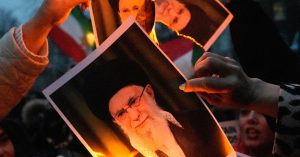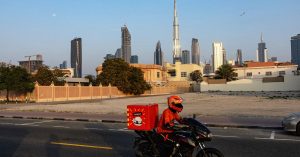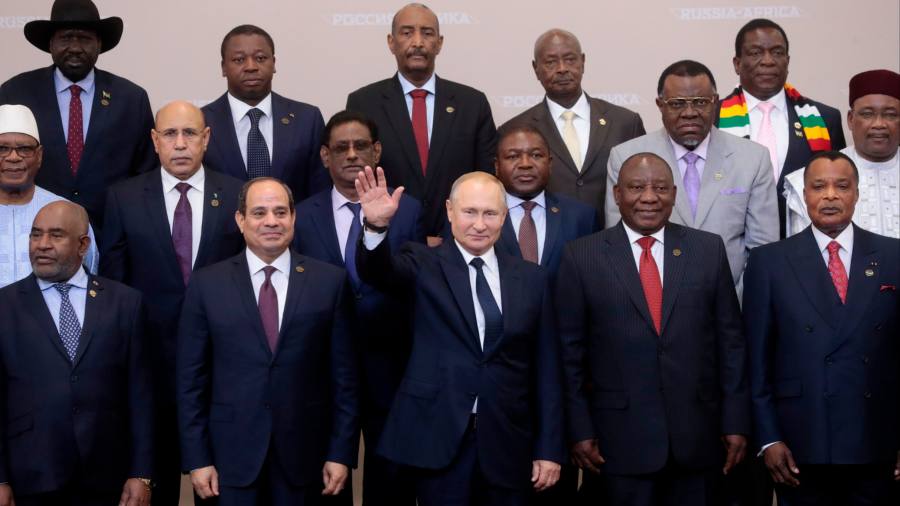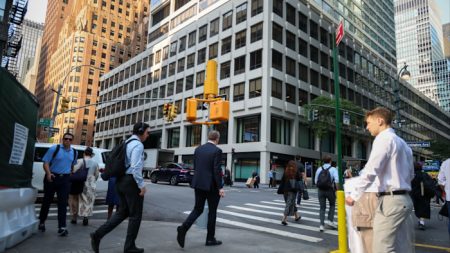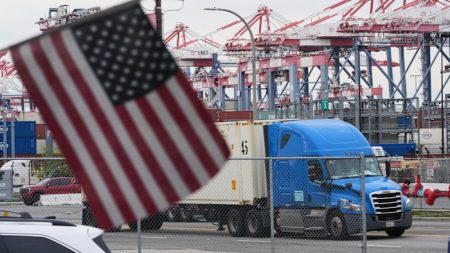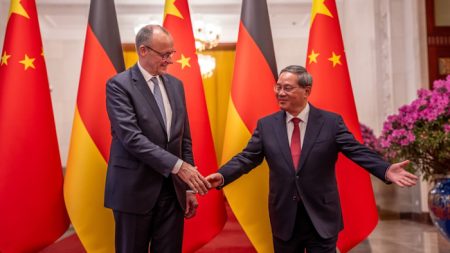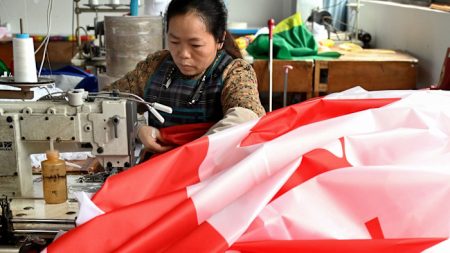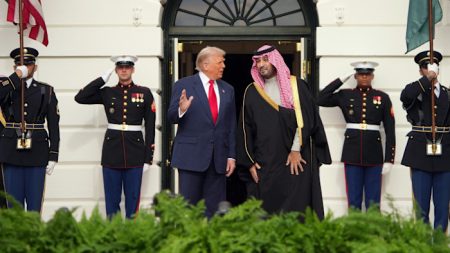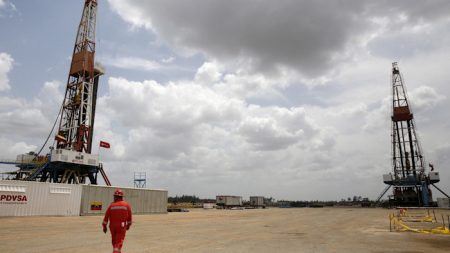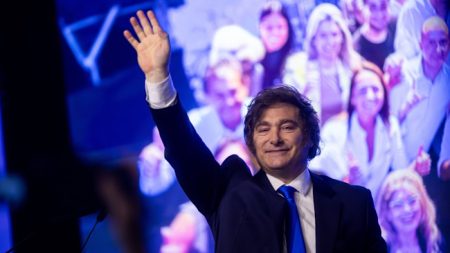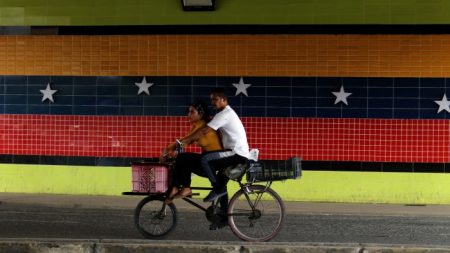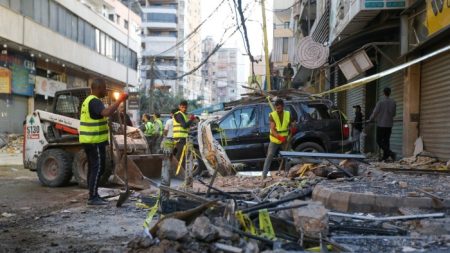Receive free Africa updates
We’ll send you a myFT Daily Digest email rounding up the latest Africa news every morning.
African leaders will this week travel to St Petersburg for a high-level summit hosted by Vladimir Putin that reveals how even Russia’s resurgence on the continent cannot mask the consequences of its war in Ukraine.
The first Russia-Africa summit, in 2019, was a statement of the Kremlin’s ambitions to grow its overseas influence, as dozens of African leaders took in exhibits of weaponry and nuclear technology.
The successor gathering, which begins on Thursday, comes a year and a half into Russia’s full-scale war in Ukraine. Moscow’s forces have stepped up the bombing of Ukrainian ports since it exited a UN-led grain deal, leaving some African leaders fretting over possible food riots at home.
Korir Sing’Oei, principal secretary for foreign affairs for Kenya, which has been rocked by waves of protests over soaring prices, called Putin’s decision last week to quit the accord that has facilitated the export of 33mn tons of Ukrainian grain, a “stab in the back . . . that disproportionately impacts countries in the Horn of Africa already impacted by drought”.
Kenyan president William Ruto, who has not confirmed whether he would travel to Russia, said of gatherings such as this and the recent US-Africa summit: “Some of the people who invite us to these meetings tell us ‘if you don’t come, there will be consequences’.”
“So all of us are forced to go to a meeting that has no meaningful outcome because of blackmail,” he said in May, without specifying the source of the veiled threat. “This is not right.”
Putin has played down Russia’s exit from the Black Sea accord, insisting that “instead of helping really needy countries, the west used the grain deal for political blackmail”.
He is likely to use the summit to push his plan to export Russian grain to Africa and cut Ukraine out of the global market. This would involve gas-rich Qatar paying for Russia to ship grain to Turkey, which would then distribute it to poorer countries. But there has been scepticism about the idea, first revealed in the Financial Times, particularly whether Doha and Ankara would want to be involved.
Putin has sought to leverage African leaders’ desire to restore grain supplies and dislike of western sanctions as a way to rally sympathy for Russia’s stance on Ukraine in the global south.
Evghenia Sleptsova, senior emerging market economist at Oxford Economics, said the African leaders who attend would “likely try to pressure Russia to return to the grain deal”, while Moscow would seek to “use the opportunity to try and extract bigger concessions from the west before renewing its participation in the initiative”.
Russia has made some inroads into Africa, where it has sought to play to its old nuclear and military strengths. But its push to sell Rosatom nuclear knowhow to the continent, for example, has produced a single power-plant deal, with Egypt. South Africa abandoned plans for a fleet of Russian nuclear plants years ago.
Conventional Russian ties to the continent have also been eclipsed in the public eye by Moscow’s use of Yevgeny Prigozhin’s Wagner group as a praetorian guard for some of Africa’s most unstable regimes, from Mali to the Central African Republic, in return for mineral extraction.
Despite last month’s mutiny that deposited remnants of Wagner forces in Belarus, Prigozhin last week told a Cameroon-based television station with links to Russia — a sign of one of the Kremlin’s more successful influence operations on the continent — that there would “be no reduction in our programmes in Africa”.
South Africa’s president Cyril Ramaphosa will use his attendance at the summit to advance a peace plan that he and three other African presidents pitched on visits to Kyiv and Moscow last month, according to South African officials. The plan has called for not just free trade in the Black Sea but also the importance of territorial sovereignty.
Ramaphosa will also travel with one less thing on his mind, after Putin agreed not to attend next month’s Brics gathering in Johannesburg given that the International Criminal Court has issued an arrest warrant against him for war crimes. South Africa would have been technically obliged to arrest Putin on his arrival.
Alexander Gabuev, director of the Carnegie Russia Eurasia Center, said the manoeuvring by African countries ahead of the summit showed “the price of working with Russia is going up”.
The impact of the ICC indictment and US pressure on African countries to resist trading with Moscow had “created a lot of costs for Russia and will strengthen the Africans’ negotiating position”, he added.
Yet this does not mean that many African countries will follow the west in treating Russia as a full pariah anytime soon. South Africa, which western officials see as equivocating over Russia’s invasion, is one of those that has insisted on keeping diplomatic lines open.
“African states do not maintain leverage over Moscow, and even less so over Kyiv,” said Priyal Singh, senior researcher at South Africa’s Institute for Security Studies. At the same time, the continent’s leaders “cannot afford to be seen as sitting on the sidelines . . . they need to be seen as proactive international actors”.
Read the full article here
